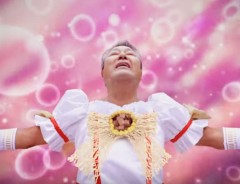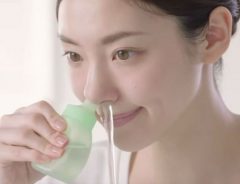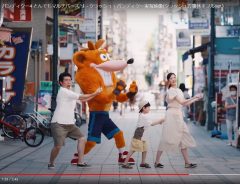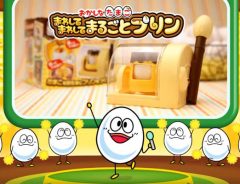Related Article
-

The “Weirdest” And Funniest Japanese Commercials Of 2015
-

Dancing Black Cats In Suits Are Japanese Shipping Service’s Gift To The World
-

Nothing Says “Japanese Commercial” Like Turning Your Nose Into A Faucet
-

Crash Bandicoot befriends Japanese family and has a dance party in wacky new promo for upcoming game
-

This Donald Trump As A Japanese Commercial Parody Is So Insane It Could Be Real
-

The Japanese Commercial Jingle That Will Never Leave Your Head



Let me preface this article by disclaiming that I teach part-time at an eikaiwa (English conversation school), and bet that some of you reading this do as well, though hopefully not the same one.
Eikaiwa schools are almost as common as convenience stores in Japan.
Konbinis, the convenient way to refer to convenience stores in Japanese, all offer pretty much the same products right? Take fried chicken for example. 7-11 offers nana-chiki, FamilyMart sells fami-chiki, and Lawson has L-chiki. I’m just going with the big three here so sorry Ministop and Daily Yamazaki, etc. Maybe you’re a fami-chiki kinda guy. I personally prefer L-chiki...just kidding, you could blindfold me and I’d have no idea which brand I’m eating.
So what’s the point of my konbini fried chicken rant? Well...uh...where was I going with that? Oh yeah, English schools, right? So you’ve got Berlitz, Nova, Aeon, just throwing out some big names, among countless other Eikaiwa companies. How do English learners even differentiate these schools from each other? Well, I suppose they take into account some basics like the price and which school is most conveniently located for them.
Then there’s the great amount of money spent on advertising. You’ve seen the ads on the subway and maybe even been handed a pack of face tissues advertising English lessons. Though, if so, that guy obviously wasn’t doing a very good job profiling the crowd for prospective students. I mean come on. Handing Eikaiwa fliers to a foreigner...
Then there’s the commercials. A few have been popping up on my YouTube lately and they made me LOL so I wanted to share them with you today.
This commercial by Rosetta Stone Learning Center, which I may or may not work at, made me laugh so hard. I brought it up with the CEO during a training. Though that was a bad idea because he went on to lecture me about how the commercial had been a total flop and what other marketing methods they had been working on...zzzzzz....
To highlight the already very clear picture, it’s just another day at an izakaya when suddenly a foreigner walks in. Apparently it’s one of the shop master’s old foreign buddies and he switches from Japanese to completely fluent English to catch up with his friend. The customer next to them is shocked and left mouth agape. So, of course, she signs up for English lessons.
Here’s another of RSLC’s advertisements which ties in to the previous one, set in the same izakaya and featuring the same shocked Japanese woman.
Just to be fair, here’s a commercial from GABA. It goes for a different feel, but ends up being just as ridiculous, if not more so.
Of course these advertisers went the humor route and are just being dramatic to try and entice customers. But there are plenty of students who naively believe they can become fluent just from their once-a-week English lessons. These are oftentimes low-level learners who struggle to make small talk and answer variations of “How are you?”
I always encourage my students to study outside of class, join Meetups, and make foreign friends. You can only get better at something by actually doing it and that goes especially for learning foreign languages.
So if you’re a teacher, I implore you to be honest with your students about what it takes to get better at English. And if you’re trying to learn Japanese or some other language, be real with yourself about what it takes to improve. That’s my two cents.